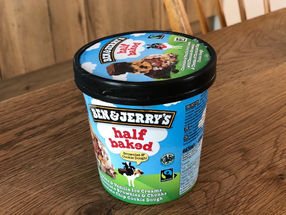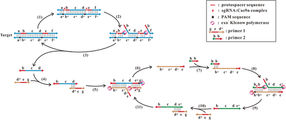Goodbye to brand loyalty: German consumers like to try new things
Whether Nestlé, Unilever or Heinz Ketchup: the brand manufacturers have a problem. Consumers in Germany are no longer as loyal to their favourite brands as they used to be. "When choosing their products and brands, more and more consumers are no longer a creature of habit. For many, rediscovering is now part of purchasing," says Fred Hogen, trade expert at market research company Nielsen Germany, describing the current situation in the retail sector.

Photo by Boxed Water Is Better on Unsplash
In a survey conducted by market researchers, only 13 percent of consumers surveyed described themselves as loyal customers who rarely try out new brands and products when shopping for everyday goods. Every third consumer said they love to try something new with household goods and food.
In fact, the competition for brand manufacturers is currently greater than ever: not only the retail chains are trying to gain market share with their own brands. Even stylish food start-ups such as Like Meat, Little Lunch or Ankerkraut compete with the top dogs for space in the shelves and freezers with original products.
According to Nielsen, the loyalty of consumers to their previous favourite products is determined above all by one point when it comes to everyday goods: the price-performance ratio. But this is precisely what threatens to become a problem for many branded companies. According to the recently published "Handelsmarkenmonitor 2019" (Trademark Monitor 2019) published by the market research institute Ipsos and the "Lebensmittel Zeitung", around two-thirds of consumers now regard branded goods and the mostly cheaper private labels as equally trustworthy and of high quality.
According to the Gesellschaft für Konsumforschung, private labels are gaining market share almost everywhere: in supermarkets as well as in drugstores and hypermarkets. The only exceptions are discounters, where Aldi is increasingly adding products from brand manufacturers to its shelves.
A recent survey by Oliver Wyman, a management consultancy, showed just how much branded goods have lost in the eyes of many consumers. According to the study, not even a quarter (23 percent) of consumers are bothered if branded products are missing in the shop. Three out of four shoppers don't even notice the gap in the shelf.
Many manufacturers have relied too long on established brands and neglected their innovation activities, complains Oliver Wyman trade expert Jens von Wedel.
According to GfK, it is not only retailers' own brands that benefit from this, but also food start-ups such as Just Spices or Share, which are quicker than the top dogs to identify current trends and occupy the niche with their own products.
The large retail chains such as Edeka and Rewe are only too prepared to make room for newcomers on the shelves - even if this is at the expense of the established brands. This is in the very interest of the retail chains, emphasized the market researchers from GfK.
It enables them to "attract and retain young, discerning and innovative consumers".
The brand manufacturers can probably not hope for a return of the German citizens to old buying habits. "The Germans are increasingly reluctant to make long-term commitments to their brands and products," observes Nielsen expert Hogen. "The brand change itself becomes a shopping experience that more and more consumers are looking for."/rea/DP/zb (dpa)
Note: This article has been translated using a computer system without human intervention. LUMITOS offers these automatic translations to present a wider range of current news. Since this article has been translated with automatic translation, it is possible that it contains errors in vocabulary, syntax or grammar. The original article in German can be found here.



























































